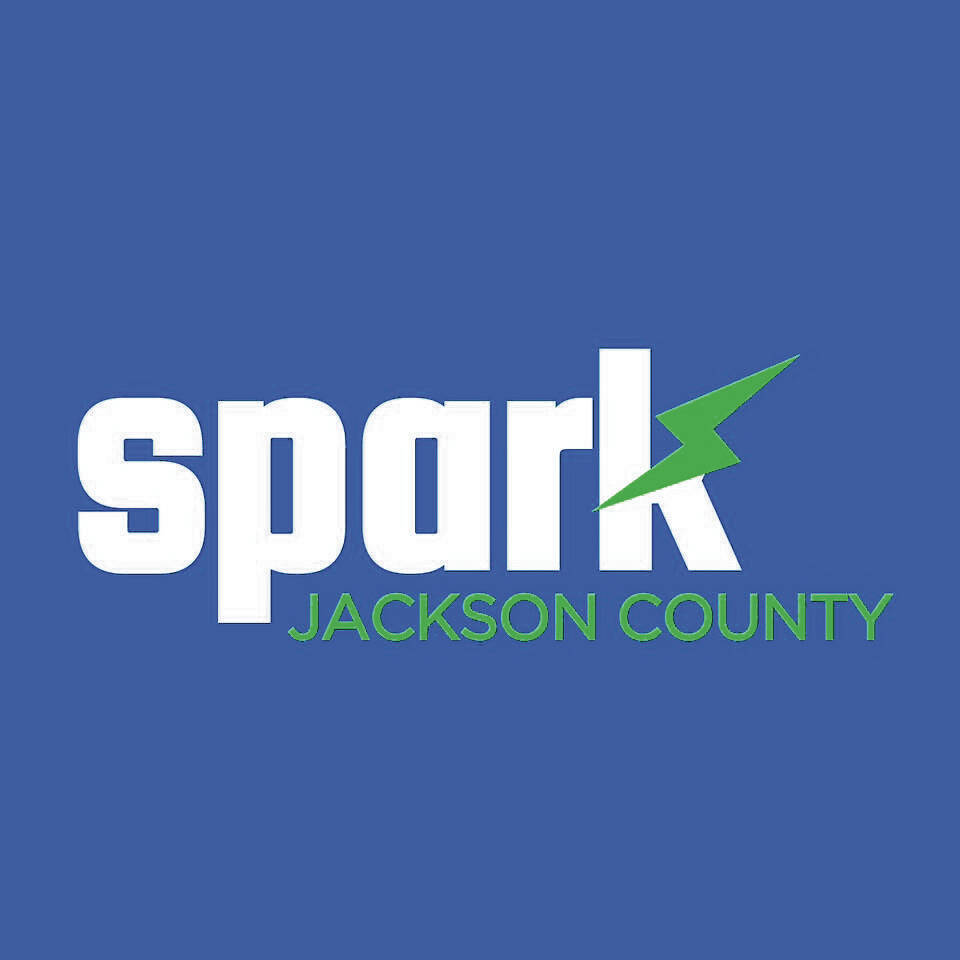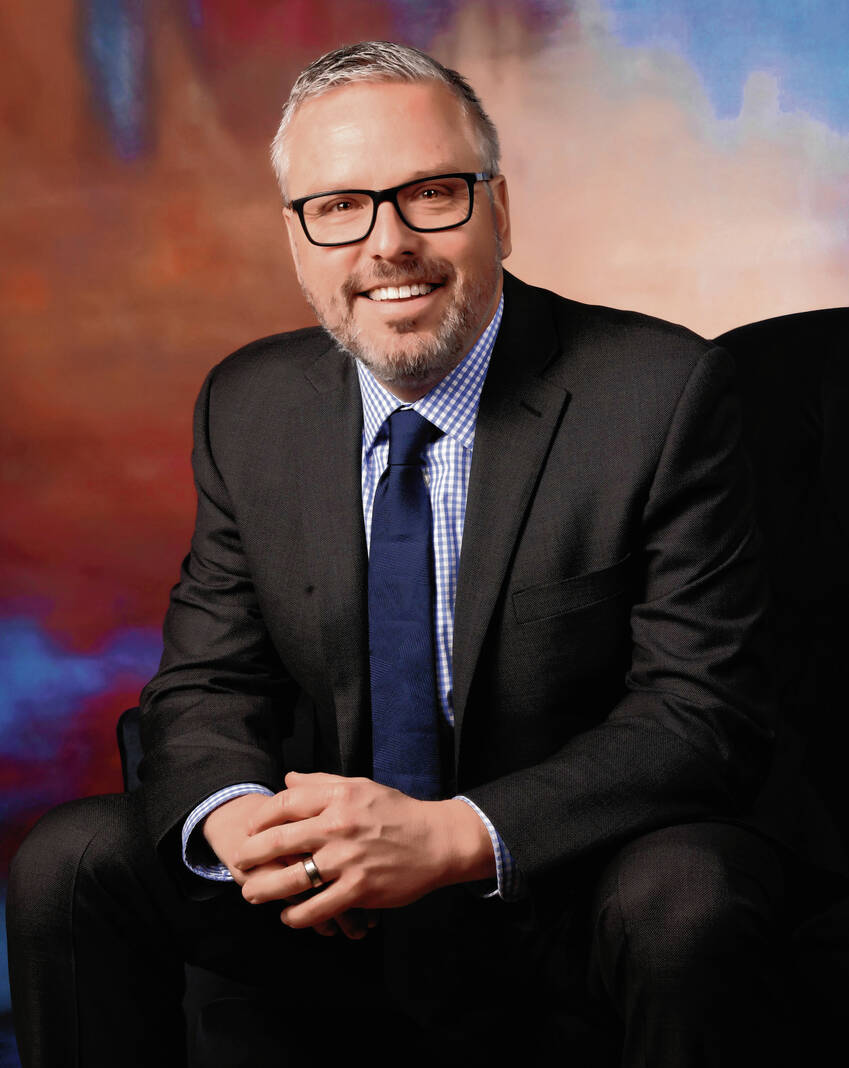
Dan Robison, director of the Jackson County Chamber, and Joe Rust of Set Sail Services went in front of the Seymour Redevelopment Commission Monday afternoon to ask for their support to establish a co-working space for entrepreneurs, innovators and remote workers in the city of Seymour.
Tribune File Photo

Robison
Tribune File Photo
A space for entrepreneurs, start-up businesses and big thinkers to collaborate and grow is in sight for Jackson County, but funding this $1.2 million project could prove to be a challenge.
Dan Robison, director of the Jackson County Chamber, and Joe Rust with Set Sail Services went in front of the Seymour Redevelopment Commission on Monday afternoon to ask for their support to establish a co-working space for entrepreneurs, innovators and remote workers in the city.
“We have identified a gap in the local ecosystem around business development,” Robison said. “We agree that we are in a community that enjoys supporting businesses, but for many folks that are starting new businesses or entrepreneurs there are not a lot of resources to drive innovation.”
Recently, Forbes Magazine reported Indiana is the top state to launch a business and Robison said with their initiative, SPARK Jackson County, their goal is to make Jackson County the number one place in rural Indiana to start a business.
A recent study on Seymour completed by the Brookings Institute & LISC discovered that new businesses open and operate here without support services such as business planning, marketing and peer-to-peer networking.
The county has also seen the second largest increase of Latinos over the last decade in Indiana, with an increase of 159.4%. Also, there are more than 800 professionals who work from home or have a hybrid remote job in Jackson County, according to the latest 5-year American Community Survey.
Since these findings, Robison said SPARK Jackson County started launching programs to address resource gaps and increase success for local entrepreneurs and innovators. The goal is to leverage existing local resources while also being an onramp for the business ecosystem.
“We are not looking to reproduce or duplicate programs or resources, we want to be able to connect people,” Rust said. “We have connected with over 60 entrepreneurs and innovators in Jackson County.”
The Indiana Economic Development Corp. (IEDC) gave SPARK Jackson County a $40,000 grant in October to fund the initiative and begin programs that will help jump-start new businesses.
These programs include SPARK Tank, a $15,000 pitch competition; SPARK Fund; a $400,000 fund to invest in Jackson County start-up companies; SPARK Challenge, a series of industry specific challenges as a competition to deliver innovation; SPARK Amigos, a Latino focused program to support Latino entrepreneurs; SPARK Concierge, a personalized service connecting resources to entrepreneurs; SPARK Club, a club established for local entrepreneurs to share ideas and feedback and SPARK School, a student program to demonstrate how to operate a business.
Robison said they have already seen success with their recent SPARK Tank event in which they awarded $20,000 to entrepreneurs to start-up their big ideas. He also mentioned the IEDC has selected SPARK Jackson County to be featured in their 2024 Entrepreneurship Indiana yearbook.
Robison said the obvious next step for them is to establish a co-working space.
“This place will serve as a hub for innovation and support,” he said. “A place for entrepreneurs, innovators and remote workers to have a community, to share ideas and to share resources.”
Robison said another goal is to draw big thinkers across the state to the co-working space through the Indiana Co-Working Passport Program, which allows any member of a participating space to co-work at any other space a day each month for free.
He said he hopes local business leaders will use this space as well to meet with start-up leaders to offer their support and services.
“This will be a place where healthy businesses are born, businesses contribute back to the community and businesses that will attract our kids to stay here instead of moving away,” Robison said.
He said the Jackson County Chamber has applied for READI 2.0 funds and is hoping to receive at least $370,000. He asked the commission to help provide the local community match in those funds.
Two properties are in consideration for the co-working space, both are either in the downtown district or adjacent and underdeveloped.
The chamber is considering housing and building out the co-working space in either half of the space at Graessle-Mercer Co. at 100 N. Pine St., or at the underdeveloped property at CenterPoint Energy (Indiana Gas) at 517 W. Second St.
According to their financial projections, the chamber is looking to receive around $1,850,000 in startup funding comprised of various grants, sponsorships and private dollars. The total projected startup of initial building purchase, buildout and development totals to $1,200,000, which does not include salaries for staff, marketing, programing and the investment fund.
Their projected annual revenue includes sponsors, events and leasing opportunities and co-working memberships that equate to about $275,000.
Nate Tormoehlen, the commission’s vice president, asked Robison if they would still have enough to get the space up and running if the chamber did not receive the funding amount they projected.
“We are comfortable with our programming and our focus is on a place,” Robison said. “We are looking at a $1.2 million project, but if it ends up being $800,000, we will figure it out.”
Commission member Tim Hardin asked who would be the owner of the building if they were to make a purchase on a property.
Robison said this is something the Chamber is still deciding whether to make the organization the sole deed holder or to form a separate supporting organization to own the building.
Commission member JJ Reinhart asked Robison if there would be potential for the Jackson County Learning Center to workout of the same building. Robison said it was something they considered, but it would not be fruitful with their concept.
“They would be a great partner in this, but with the model that we are running with I don’t think the learning center would be conducive to the environment we are trying to create,” he said.
Robison said communities in southern Indiana have elements of this concept they are trying to achieve, but Jackson County is the first to take on this new-age approach.
“Elements of this could live on their own, but when they are together it can multiply your efforts,” he said. “The beauty of a co-working space is what happens in it, community and collaboration. It connects the right people in the room and for our local businesses that are established it will give them resources as well.”
Robison said they hope to hear about a range of money that could be available from READI 2.0 in the May to June timeframe.
He said their next step is to present the proposal to the Jackson County Redevelopment Commission to receive its support.
“I definitely need time to read through this and will probably have more questions later on,” commission member Bonnye Good said. “I don’t think we will be deciding on anything today.”
If funding is secured, the implemented timeline shows the development of a co-working space as early as this August and hiring full-time staff by Jan. of 2025.
